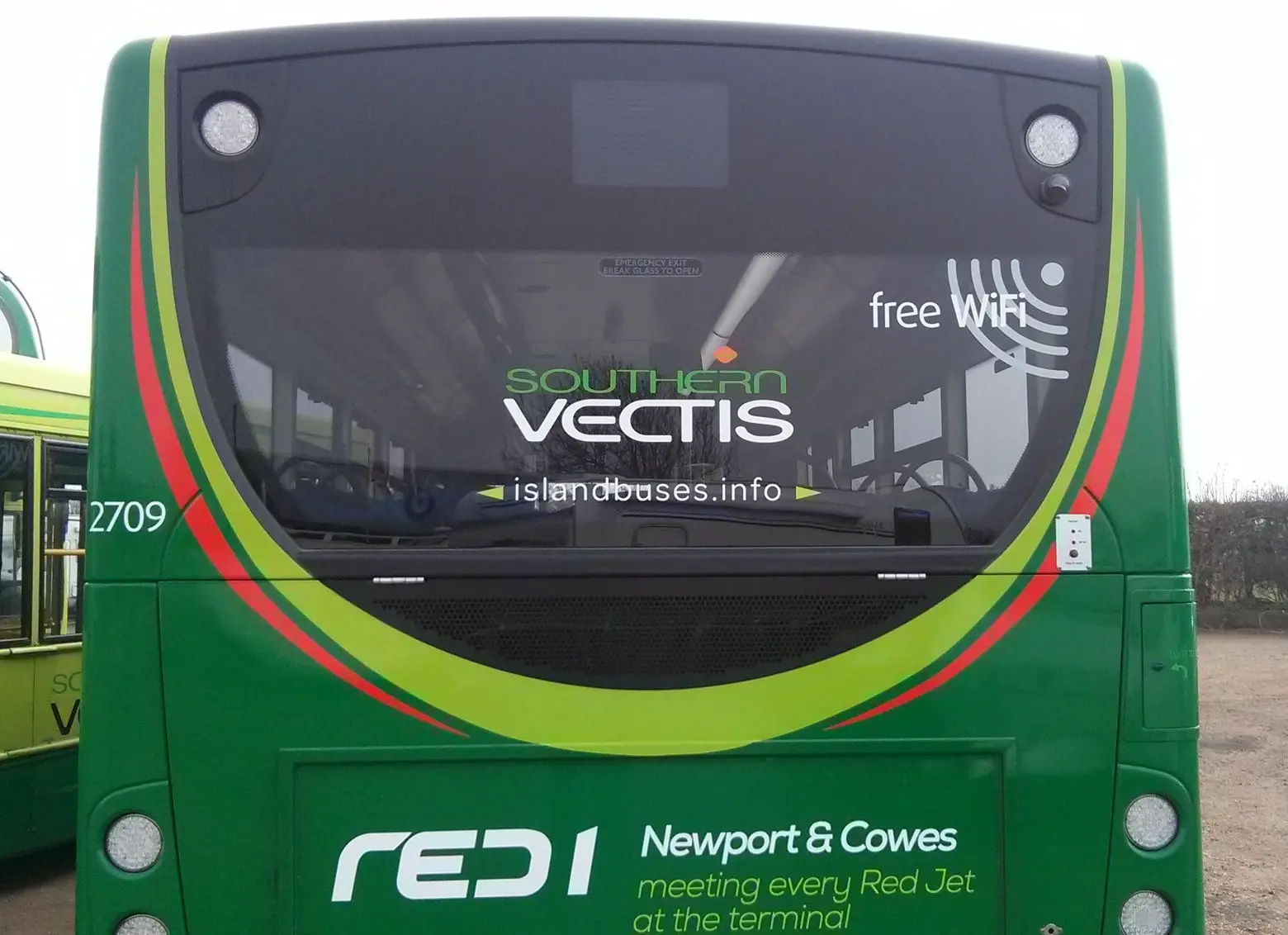The Isle of Wight Bus and Rail Users’ group held a public meeting last Saturday 18th January.
First to speak was Richard Tyldsley on changes to the summer timetable. He advised that traffic congestion had increased so, to maintain reliability, routes 2/3/8 would have extra time added to their journeys in the Sandown Bay area, route 9 would have extra time added between Ryde and Newport, and the Needles Breezer in the Alum Bay area.
Re-routing the Needles Breezer
The Needles Breezer would also be re-routed between Freshwater Bay and Alum Bay and would serve Freshwater and Totland, rather than Farringford and the Highdown Inn.
Additional journeys
Route 8 would have additional journeys added to restore the mostly hourly service on Monday to Friday evenings.
Route 27 would have an additional journey from Yarmouth to Tapnell Farm, achieved by extending the Island Coaster service.
All Breezer all-day fares would increase from £10 to £12.
Electric buses too expensive
New buses, with Euro 6 emission controls, will be introduced on routes 7 & 8.
In questions, he was asked about electric buses replacing diesels, but said electric vehicles are twice as expensive as diesels, in about five years time it would probably change, but that the most environmentally efficient solution now was for people to switch from driving cars to using buses.
Ward: Permits prior to work for utility companies
Cabinet member for transport and infrastructure, Cllr Ian Ward was the next to speak.
He reported that later this year utilities would need to apply to the IW Council for a permit before starting work.
St Mary’s roundabout
He said the St Mary’s roundabout scheme was already showing an improvement in traffic flow, but was just the start of many more road improvements in the Newport area.
This wasn’t primarily for the present, but for the future, with housing growth expected to increase traffic.
A questioner suggested that IW Council revenue from car parking charges could be used to fund the continuation of the discretionary disabled travel scheme and he responded that the results of the consultation were still being analysed.
Funding bids
Next was Stewart Chandler, IWC Client Manager for Transport. He reported that a bid for improving transport infrastructure in Ryde under the “Transforming Cities” fund for Portsmouth had been submitted in December. (Ryde is included as having good transport links with Portsmouth.)
He also stated that various bus stops had been identified as needing improvement and funding was being sought for these.
Island Line Trains
Finally Andrew Mundy, Programme Manager for South Western Railway who is responsible for delivering the Island Line upgrade, reported progress.
He said that the new trains were to a larger gauge than the existing trains so either the platforms would need to be raised or the track lowered, which meant it wouldn’t be possible to run both types of stock at the same time.
New 30 minute service
A passing loop will be installed at Brading, which will allow a regular 30 min service to run, with the option of increasing this to a 20 min service if required in the future.
Line closed for works
7,000 tonnes of spoil will need to be removed.
The line will need to be closed this Autumn for four weeks between Ryde St John’s Road and Ryde Pier Head, and for eight weeks between Shanklin and Ryde St John’s Road, when a replacement bus service will operate.
New timetable in May 2021
The logistics of transferring the new trains will be challenging and they will need 700 miles of test running before entering passenger service.
The new timetable will start in May 2021.
Accessibility at Ryde St John’s
He was asked if wheelchair users would be able to access the platforms at Brading and Ryde St John’s to which he replied that the crossing to the south of Brading station would be upgraded to give access to the southbound platform and Network Rail was considering the possibility of making Ryde St John’s Road fully accessible.
Funding already ring-fenced
He was also asked if the funding was secure in the event of the failure of the South Western Railway franchise. He replied that the £11m for trains and the £15m for infrastructure is DfT money and is ring-fenced, so will be secure whatever happens to the franchise.
Another questioner wanted to know why replacement transport wasn’t provided along Ryde pier when trains weren’t running, and he said he would raise this issue with his company.





